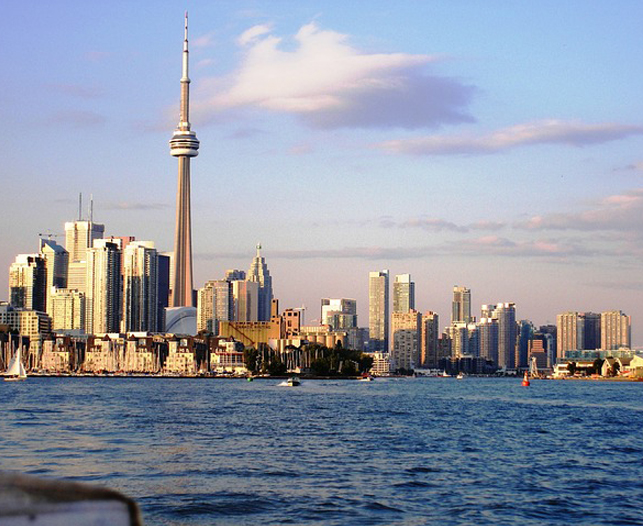Book Appointment
(03) 9939 6830, 0451827099
info@walesoverseas.com
Are you eligible for Study Abroad?
Free Assessment
Book Appointment
(03) 9939 6830, 0451827099
info@walesoverseas.com
Are you eligible for Study Abroad?
Free Assessment
It is not only among the top three countries in the Organization for Economic Co-operation and Development, but Canada is also ranked as the number one country in the world to live in and for the better study options. Canada is the most acceptable place for higher education.
When you choose to study in Canada, you will discover a multitude of cultural, leisure, and other activities year-round. The United Nations has declared that Canada has the highest quality of life in the world. A vast country with a variety of tourist destinations. You can enjoy many museums, seasonal festivals, and exciting nightlife that each province and territory has to offer. Canada also has a beautiful countryside which means that most outdoor recreational activities are very popular here, whether it be skiing, cycling, hiking, camping, sightseeing, or even ice sailing.
Canadians place a premium on education and demand first-rate schools. Canada spends more capital on its education system than any other country in the G-7 and is among the top three countries in the Organization for Economic Cooperation and Development (OECD). A degree from a Canadian university is recognized worldwide and as a result, international students who graduate from Canadian universities enjoy successful and prosperous careers.

While the quality of education is always high, every university has a style of its own: large, bustling campuses or smaller, more intimate settings; a university education in English or French; metropolitan cities or small towns. You can choose to study at large universities offering a wide range of subjects at the undergraduate or graduate levels, or at small liberal arts institutions with a focus on undergraduate education. Canada's universities and colleges are world-renowned for their high standards, safe campuses, and educational excellence. They are at the forefront of the information technology revolution and ensure that their students are equipped for the 21st century. Many U.S. companies actively recruit on Canadian campus.
The Canadian education system encompasses both publicly funded and private schools. There are a lot of Education consultants in Canada who provide a better way to the students to get in there. Education institutions are not officially ranked in Canada, as all Canadian institutions offer high quality programs. When choosing your school in Canada, consider the type, size and location of the institution. If you are interested in a particular area of study, investigate which schools have more to offer in that discipline.
Top Institutions
The Canadian education system boasts of superlative standards and rigorous quality controls, which ensures that students graduating from their universities are valued by employers across the world. Moreover, a degree, diploma or a certificate awarded by a Canadian institute is globally recognized as being at par with those awarded by Commonwealth nations or the United States. University of Toronto and British Colombia are two of the top rated universities in the world.
State of art facilities
Students can choose from a large number of career focused certificate, diploma, postgraduate and degree programs. Students keen on doing original and intensive search during their Master's and PhD levels would find the facilities offered by Canadian universities more than substantial.
Affordable Courses
While Canada's education and standard of living are amongst the highest in the world, its tuition fees and cost of living are generally lower than US and UK. A number of comparison studies conducted by educational publications of repute prove that students can save considerably on their tuition fees while studying in Canada. Job Opportunities during and after education
You also have the option of working outside the campus limited to 20 hours a week during semester months and full time during scheduled breaks like summer and winter vacations.
Canada also offers post study work right for 1-2 years depending on the course taken.
Possibility of Immigration
Students with Canadian credentials, qualifications and work experience can apply and easily secure permanent residency in Canada without having to leave after completing their education. However, this varies for each individual depending upon points obtained.
During the process which takes up to 15 to 18 months to complete, students from India find gainful full time employment which just adds to their credentials strengthening their application.
Multicultural Society
Almost all ethnic groups are represented in Canada and there are millions of Indians happily living there for generations. Canadians are very cosmopolitan and inclusive in their attitude and are generally regarded as being more polite, gracious and welcoming towards the Asian community. Students come to Canada from all over the world , so graduates build work contracts and friendships across the globe as well as with Canadians.
English Requirement
Diploma and Bachelor degrees: IELTS 6.0/ 6.5 band with no band less than 5.5/ 6.0 Graduate Diploma and Post Graduate Diploma: 6.0/ 6.5 band Masters degrees: 6.5 band with no band less than 6.0
Academic Requirement
Undergraduate Courses
It varies for each institution. A good grade is very important to go to Canada. You can apply if you have higher second division and first division. Some universities ask for much higher grades, check specific entry requirement details before applying.
Postgraduate Courses
Please fill up the form below so that we can get in touch with you at the earliest.
Suite 305, Level 3/125 Swanston St,
Melbourne VIC 3000
© 2023 Wales Overseas. All Rights Reserved.
Designed by AMS Informatics